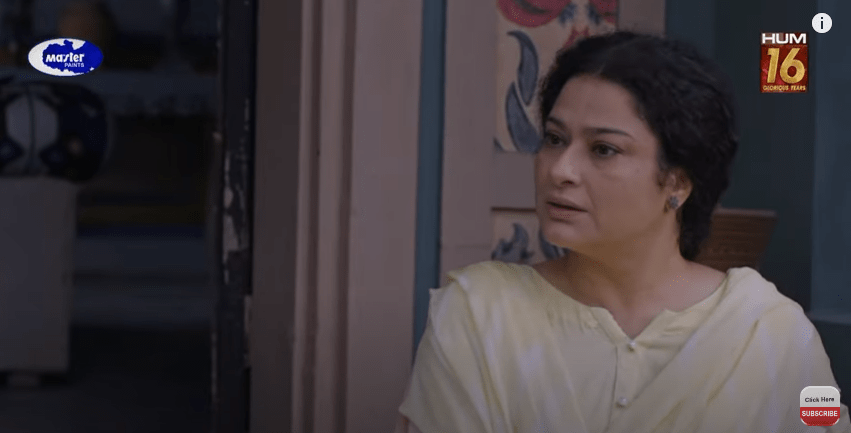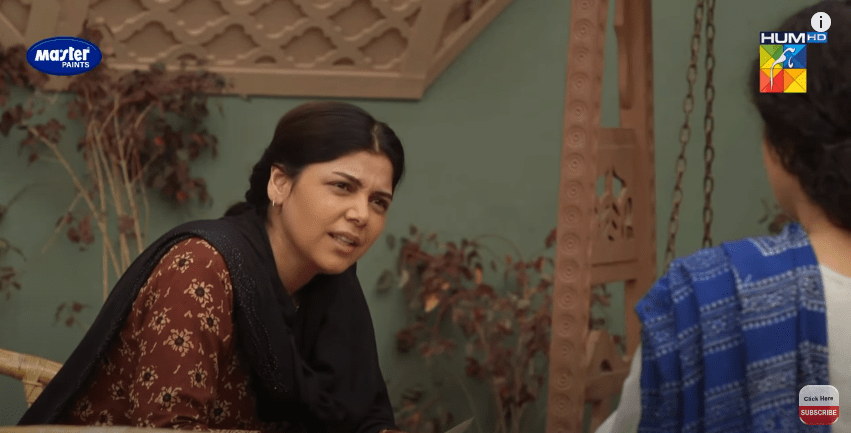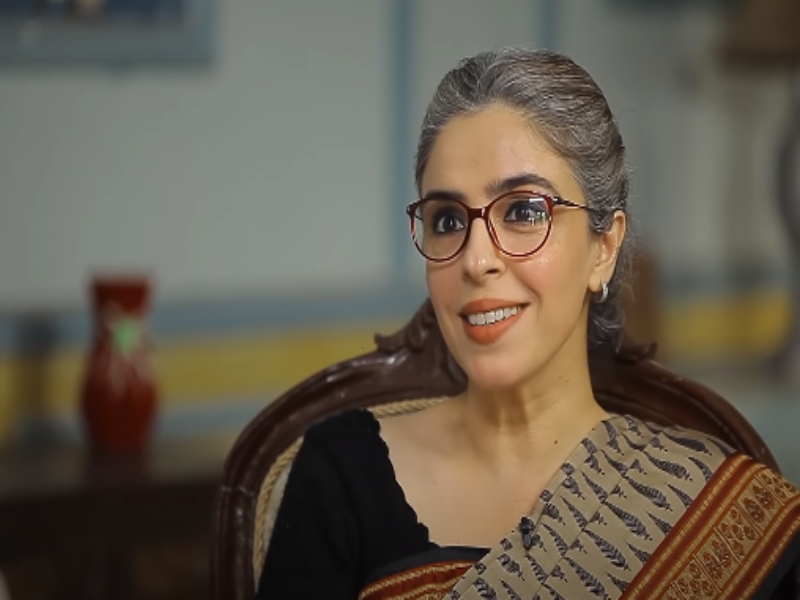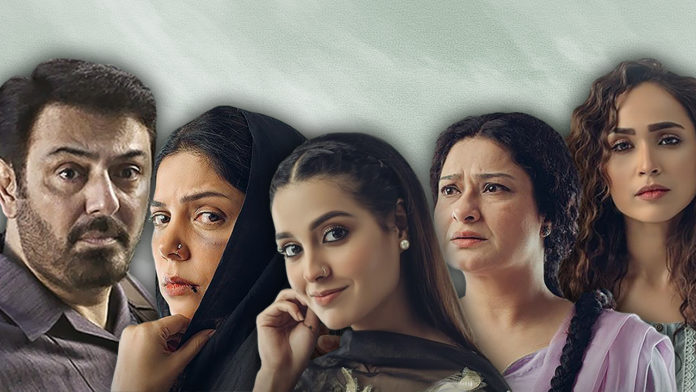Appealing performances by Noman Ejaz, Sania Saeed, and Hadiqa Kiani are making the perplexed audience hooked to a confusing plot — here’s why I believe it’s a must-watch.
‘Raqeeb Se’ feels like an out-of-the-ordinary experimental family drama. It is unapologetic, audacious, and surely addictive. The well-paced screenplay is a refreshing break from the usual plays we see. It teeters so precariously between the rights and wrongs of our society that the audience will immediately question the choices of the lead characters. Seven episodes down, one of my top picks of this year, repeatedly bounces in and out of its characters’ pasts yet strong writing dodges to spiral out of control.
The unconventional narrative follows three main leads, Maqsood Sahab (Noman Ejaz), Hajra (Sania Saeed), and Sakina (Hadiqa Kiani). Sakina showed up at the door of her ex-lover in the middle of the night after twenty long years. Life has moved on for Maqsood and Sakina but their very identity is defined by their adolescent love-affair. We can sense poignant longing and denial in each exchange of dialogues. They both haven’t looked into each others’ eyes yet, and I am still waiting for that moment on screen. ‘Raqeeb Se’ can be mistaken to be mining the lovers reunited conundrum for its narrative drive but there’s much more to it.
Hajra is not the Danish of ‘Meray Pass Tum Ho’

Many memes on the internet are pointing at Hajra as “too-good-to-be-true”. But I see more to her. She is a genuinely nice person even outside the love triangle, she is someone I would like to have a cup of chai with, any time of the day. She loves to give her best to everyone around her and always senses their needs.
Hajra generously invites Sakina into her home and makes sure she finds her stay comfortable. Hajra loves Maqsood and more than that respects him. Many people, Insha (Faryal Mehmood) included, hold the belief that Hajra’s acceptance of reality and selflessness is an act of weakness and is the same as simply letting Maqsood get away with something wrong and unfair. I, however, see her responses as acts of great strength. I have a feeling that ultimately ‘Raqeeb Se’ belongs to Hajra, she’s the protagonist in disguise, who is repeatedly presenting herself as an understanding wife but won’t allow herself to be a doormat when the time will come.
After much of her life being unfairly spent hoping for her husband’s love, she’s seeing her world falling apart. Is she questioning the worth of holding on to a fragile relationship? Or, does she believe in its strength? This is the mystery that is keeping me hooked to this play.
Nonetheless, it makes me happy to see that Hajra’s heart is not caged in her obvious insecurities, making her a strong character. No matter what Atiqa Bhabhi (Saba Faisal) says, Hajra hasn’t given her power away to Maqsood.
Sakina is the forbidden fruit, Ameera is the snake

My wife and I stand divided on Ameera’s advances towards Maqsood. She thinks this is down-right disgusting as she cannot find any reason other than infatuation in play. Well, I think Ameera hasn’t seen a gentleman like Maqsood, so idealising him is a possibility, similar to why many of us had fallen in love with our teachers at some time in our school lives. But I also think that her questions are breaking Maqsood, I can feel for him.
Think of the Maqsood-Hajra marriage as a prism through which every decision is passing, refracting into colors of Maqsood’s personality. If this not-so-perfect marriage wasn’t there, Maqsood would have concealed his vulnerable self. Whatever Maqsood would choose to do with Sakina would have been justified — asking to leave, asking to stay, or even offering marriage. Since Hajra is so perfect at performing her “martial-duties”, Maqsood is on a constant guilt-trip of not being able to reciprocate the same treatment towards his wife. Thus, we hope Maqsood ignores Sakina and goes back to his marriage with Hajra with sincerity.
Let’s celebrate imperfection

BeeGul has taken this layered scheme to explore patriarchy in an unconventional way which you will realise as the story unfolds. ‘Raqeeb Se’ lets us see right into our skewed desires to be perfect without making it obvious. Once we start peeping around how we all embrace and justify utter randomness in our decision-making, it’s next to impossible to look in the other direction. To hold on to our image of the perfect-selves, we refuse to accept our human imperfections. We have this idea that doubting our decisions and life choices is somehow an imperfection, that there’s something wrong with being doubtful. The desire for being always-right is so dangerous. ‘Raqeeb Se’ is inviting us to let go of “perfection” and just accept that we’re human. We’re imperfect. That’s what makes us unique and interesting.
You may disagree with how I have interpreted ‘Raqeeb Se’ so far, and that’s the beauty of the subtle subtext, layered characters, and a dilemma-filled plot of a beautifully written drama that we all need. I do not see why it requires a certain degree of elevation in consciousness to simply recognise that life is not-that-simple.
Written by Guest Author – Saad Riaz




